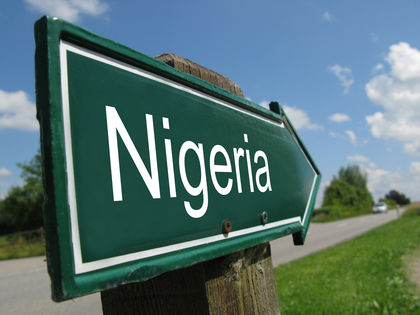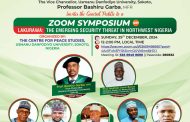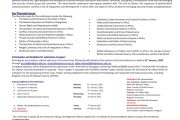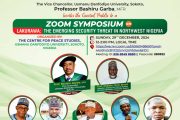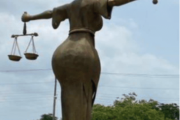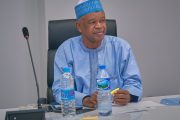Three Nigerian scholars are set to offer a situated reading of crisis in Nigeria on an online event Tuesday, February 7th, 2023. The online event jointly by the School of Advanced Study of the University of London and the Nigerian Institute of International Affairs, (NIIA) will feature Prof Bola Akinterinwa, a former Director-General of NIIA and Prof Attahiru Jega, the immediate past Chairman Nigeria’s Independent National Electoral Commission, (INEC) as well as a Bayero University, Kano political scientist.

Prof Eghosa Osaghae, DG, NIIA and moderator of event
The third name on the list is Prof Eghosa Osaghae, the Director-General, Nigerian Institute of International Affairs, and former Emeka Anyaoku Visiting Chair at the University of London. He will moderate the event during which the scholars will step back to frame the subject of the discussion.
The online engagement has two main contexts. One is President Muhammadu Buhari confiding (obviously on someone) at the Kigali Commonwealth Heads of Government meeting in June 2022, that deteriorating security situation across the country was his greatest concern. He had in mind threats located in northern Nigeria bordering the Sahel region through Borno State, insecurity in the Delta area and in the Biafra region.
The second context has to do with the country readying itself for the Presidential and national assembly elections on February 2th, 2023 and the issues around that – disruptive threats, ‘do or die’ oriented politicians and the conduct of a credible election.
There are other related questions such as what are the challenges facing an incoming government? To what extent has the impact of the COVID pandemic caused lasting damage to the Nigerian political economy? Can the Nigerian diaspora play a greater role? What of the country’s reliance on foreign exchange earnings from fossil fuels, set against the recent devastating floods in the country which are attributed to climate change?
Closely connected to the specific contexts is the imperative of factoring in the security – development nexus which largely underpins current understanding and practice of practice, particularly at the level of the Organisation for Economic Cooperation and Development, (OECD).
The significance of the one and a half hour long conversation may lie in the wisdom that the point of view that a crisis is how it is talked about although some people are already wondering if Nigeria is not already running the risk of naturalising crisis. In a way, the online event reminds Intervention of the sentence in Chief Olusegun Obasanjo’s speech at Arewa House in 1994 where he said Nigeria is “a country perpetually potentially great, almost permanently in crisis, regularly threatened with disintegration, prolongingly devoid of democracy and economically plundered and mismanaged, forever talking about democracy but forever retreating from democracy”
The question would be when will the Nigerian elite realise that the country is in danger of naturalisng crisis. The event starts from 12. 30 pm and ends by 2pm. Details of the booking for the online event can be found at https://www.sas.ac.uk/events/crisis-nigeria

